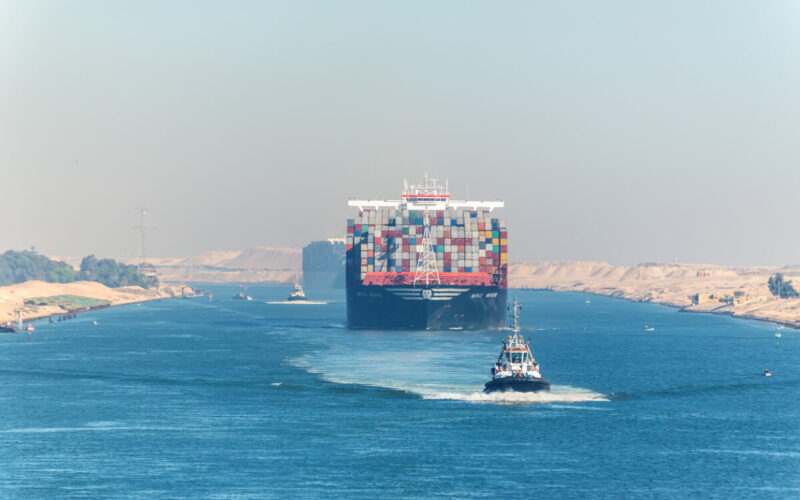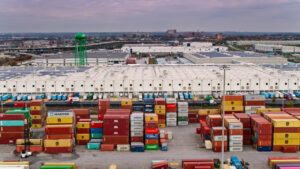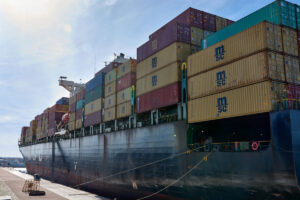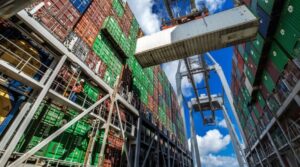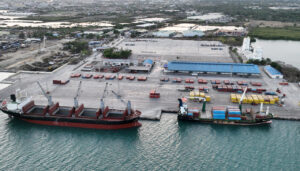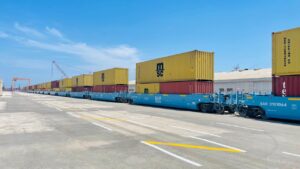Mike DeAngelis, Head of International Solutions at FourKites, reflects on the recent attacks in the Red Sea and the ripple effects they sent throughout the global shipping industry, leaving an imprint on global trade, economies, and consumers.
Attacks carried out by Houthi militants from Yemen on ships voyaging the Red Sea have dramatically stifled trade through the Suez Canal, one of the world’s most prominent shipping gateways. Major shipping liners have subsequently been forced to reroute on significantly longer voyages around the southern tip of Africa.
Shipping giant, Maersk, for instance, halted Red Sea operations indefinitely having suffered a series of attacks on its vessels and is now rerouting its ships around the Cape of Good Hope until further notice.
Moreover, major carriers such as Ocean Network Express (ONE), Orient Overseas Container Line (OOCL), Wallenius Wilhelmsen, and Yang Ming have either temporarily halted Red Sea voyages or opted to redirect their ships. Circumnavigating Africa as an alternative route spells an additional 1-2 weeks in travel duration, DeAngelis explained.
The economic implications of these attacks have spread worldwide. According to Goldman Sachs, approximately 30 per cent of global container trade has been affected, and as of December 2023, 70-80 per cent of vessels have been rerouted.
DeAngelis reported that the consequences encompass escalating freight rates, delays in ships returning to Asia for reloading before the Chinese New Year, and rising oil prices driven by supply chain concerns.
The approaching Chinese New Year alongside the enduring restrictions imposed on the Panama Canal further complicates the situation. As China approaches its seasonal export surge, DeAngelis reported that the shortfall in vessel availability could strain capacity.
Additionally, in preparation of its Spring sales, retailers typically ship goods in advance to avoid potential delays caused by the Chinese New Year. However, DeAngelis claimed that should the attacks persist for much longer, retailers could potentially see a product shortage as April nears.
Compounding the challenges, the Panama Canal’s low water levels are restricting the daily vessel transits, adding to the uncertainty surrounding the Suez Canal. Consequently, cargo between the US and Asia may opt for alternative routes, such as West Coast ports, or rely on rail and truck transportation.
The full extent of the Red Sea crisis’ impact is yet to be seen. However, DeAngelis lays out a number of mitigating measures businesses and shipping liners could implement in hopes of maintaining their schedule reliability, supply chains, and customer demands.
According to DeAngelis, shipping companies should approach long-term contracts with caution, and should look to secure some degree of flexibility or contingency clauses. He also encourages liners to be uphold transparency and communication with its customers regarding the situation as it unfolds with the aim of maintaining trust and loyalty amidst the uncertainty.
Other efficacious measures DeAngelis mentioned include exploring multimodal transportation options that could reduce transit times and offer a greater degree of flexibility, and to collaborate with logistics partners and utilise predictive analytics to ascertain the most efficient solution.
READ: Port of Rotterdam anticipates minimal impact amid Red Sea crisis
“As the new year begins, the Red Sea crisis underscores the unpredictable dynamics inherent to the shipping industry. The increasing occurrence of weather anomalies, coupled with evolving geopolitical tensions, suggests that turbulence within supply chains is likely to endure. Navigating these challenges through collaboration and planning is thus imperative for the shipping sector to move forward.
“As we progress into 2024, the shipping disruption stemming from the Red Sea crisis may be compounded by other threats like labour unrest, extreme weather events or shifting geopolitical tensions,” DeAngelis said.
“Supply chain turbulence is likely to persist, requiring vigilance and proactive planning to withstand additional shocks.”

